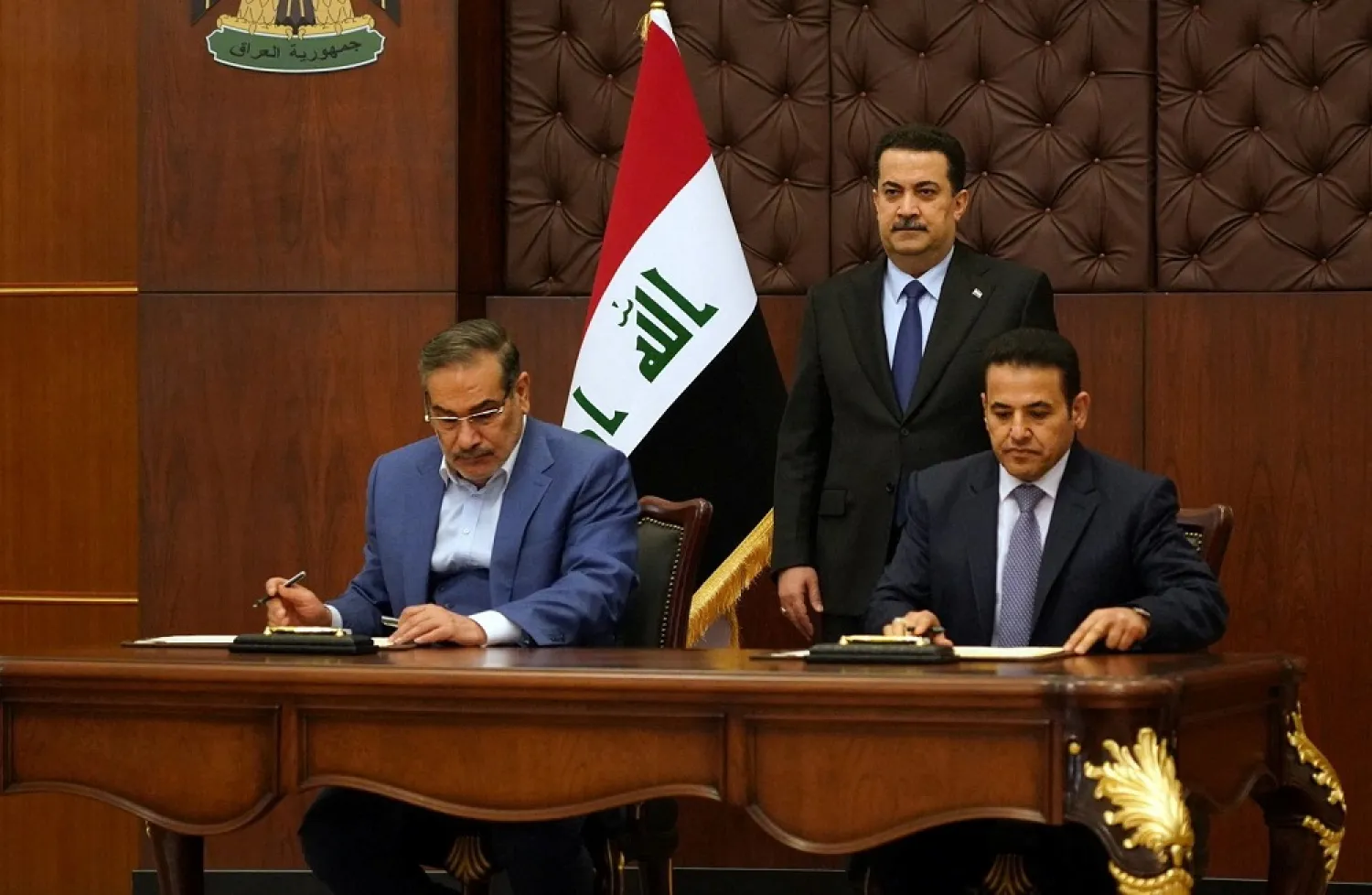Iraq and Iran signed a border security agreement on Sunday, a move Iraqi officials said aimed primarily at tightening the frontier with Iraq's Kurdish region, where Tehran says armed Kurdish dissidents pose a threat to its security.
The joint security agreement includes coordination in "protecting the common borders between the two countries and consolidating cooperation in several security fields", a statement from the Iraqi prime minister's office said.
Iran's Supreme National Security Council secretary Ali Shamkhani signed the deal with Iraq's National Security Advisor Qasim al-Araji, in the presence of Iraqi Prime Minister Mohammed al-Sudani, the prime minister office said.
"Under the signed security deal, Iraq pledges it would not allow armed groups to use its territory in the Iraqi Kurdish region to launch any border-crossing attacks on neighbor Iran," said an Iraqi security official who attended the signing.
The frontier came into renewed focus last year when Iran's Revolutionary Guards launched missile and drone attacks against Iranian Kurdish groups based in northern Iraq, accusing them of fomenting protests that were sparked by the death of a Iranian Kurdish woman while she was being held in police custody.
Iranian Foreign Minister Hossein Amirabdollahian, speaking in Tehran, said: "Shamkhani's current trip to Iraq has been planned since four months and is focused on issues related to the armed groups in northern Iraq".
Iran will in no way accept threats from Iraqi territories, he added.
Iran has also accused Kurdish militants of working with its arch-enemy Israel and has often voices concern over the alleged presence of the Israeli spy agency Mossad in the autonomous Iraqi Kurdish region.
Last year, Iran's Intelligence Ministry said a sabotage team detained by its security forces were Kurdish militants working for Israel who planned to blow up a "sensitive" defense industry center in the city of Isfahan.









